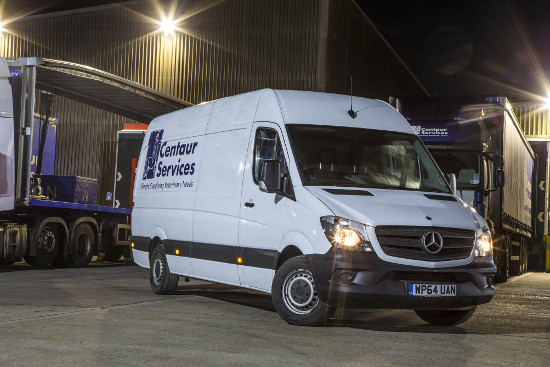Leading UK veterinary wholesaler Centaur Services has completed its transition to an all-Mercedes-Benz fleet of 60 vans.
The company supplies more than 22,000 products to veterinary practices across the UK from its headquarters in Castle Cary, Somerset, and depots in Carlisle, Ivybridge, Letchworth and Stoke-on-Trent.
The firm’s first ever Mercedes-Benz Citan and Vito vans have recently jointed its fleet, but the vast majority of its vans are Sprinters. While most are 3.5-tonne 313 CDI models, the line-up also includes a number of 5.0-tonnne 513 CDI variants.

Over recent years Centaur Services has invested heavily in its warehouse and distribution network. With the exceptions of two mid-size Vito 111 CDI crew vans, which have second rows of seats and are used by its VetSpace practice management software division to attend shows and exhibitions, its vehicles make multi-drop deliveries of food, drugs and consumables.
Typically, a van will service 17 veterinary surgeries each day. The company’s single, small Citan, a 109 CDI, is based in Inverness and covers the Highlands, where there are fewer drops and much longer distances between them, so fuel efficiency is more important than carrying capacity.
“We moved to Mercedes-Benz because of its reputation for reliability and its vehicles have certainly lived up to that promise,” said Lisa Derbyshire, Director of Supply Chain and Operations. “Not only are they much better in terms of build quality than the vans we were using previously, but the drivers much prefer them and they lead the market when it comes to safety – that’s something we’re very conscious of, given our Duty of Care to employees and other road users.
Centaur Services’ Mercedes-Benz Sprinters are fitted with tracking devices and limited to 70 mph – each covers around 60,000 miles per year.
“The Sprinter is very cost-effective and economical,” continued Lisa Derbyshire. “Those working in towns and cities will use a bit more fuel but across the fleet they’re averaging 32-33 mpg, which is great.”
